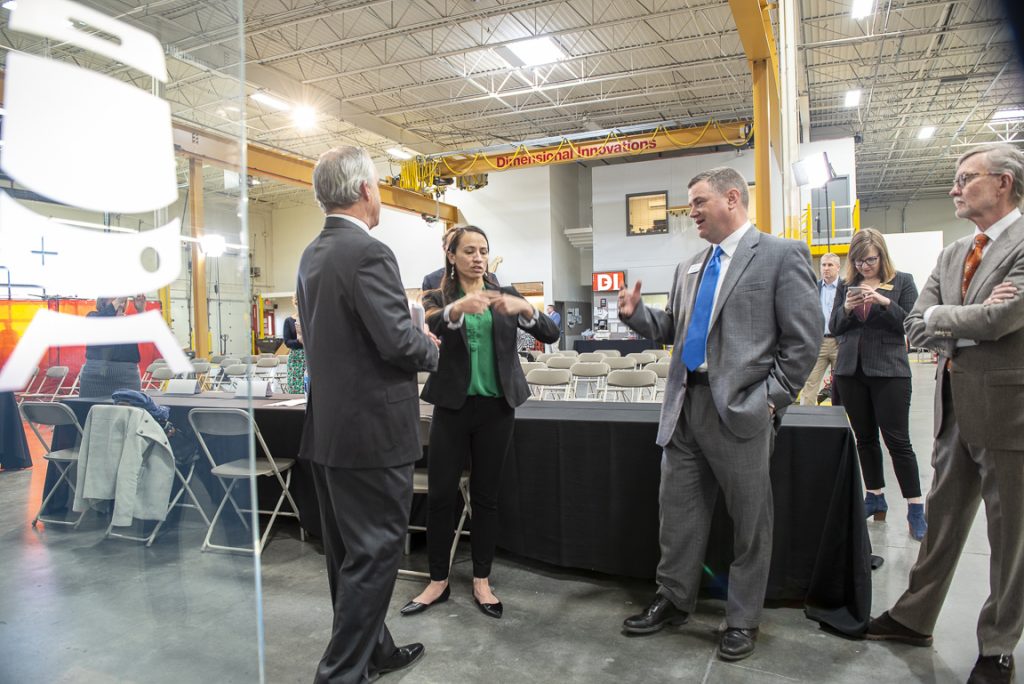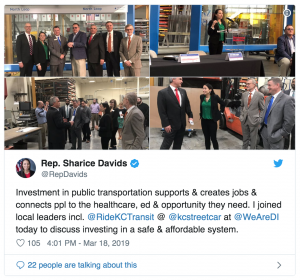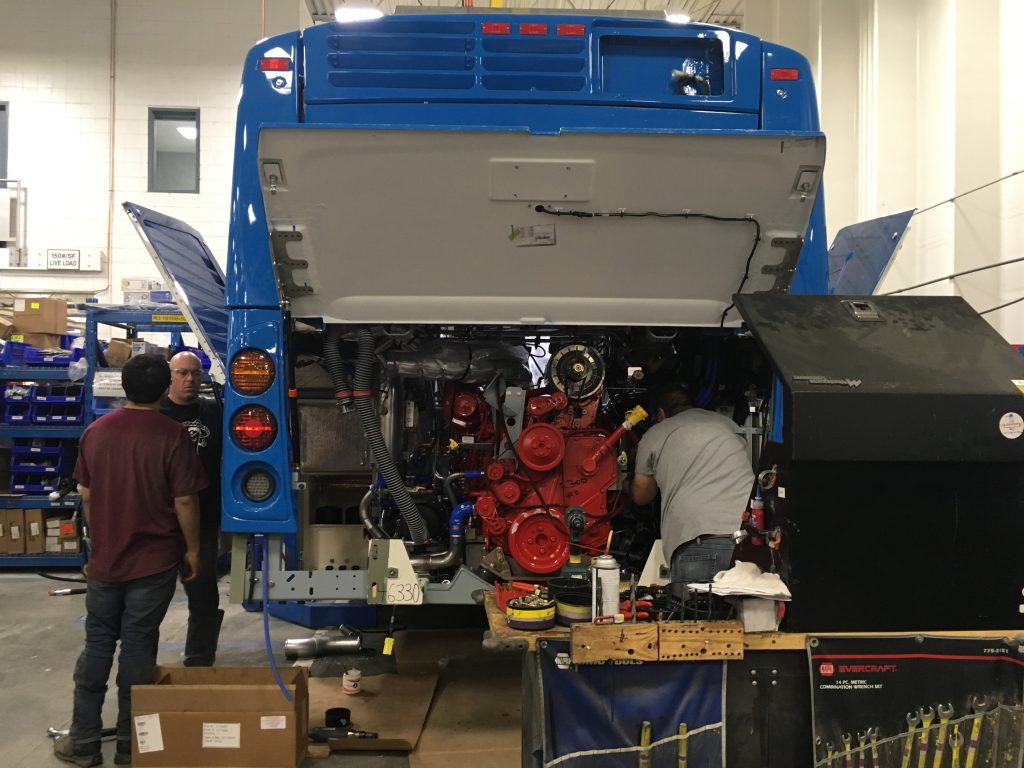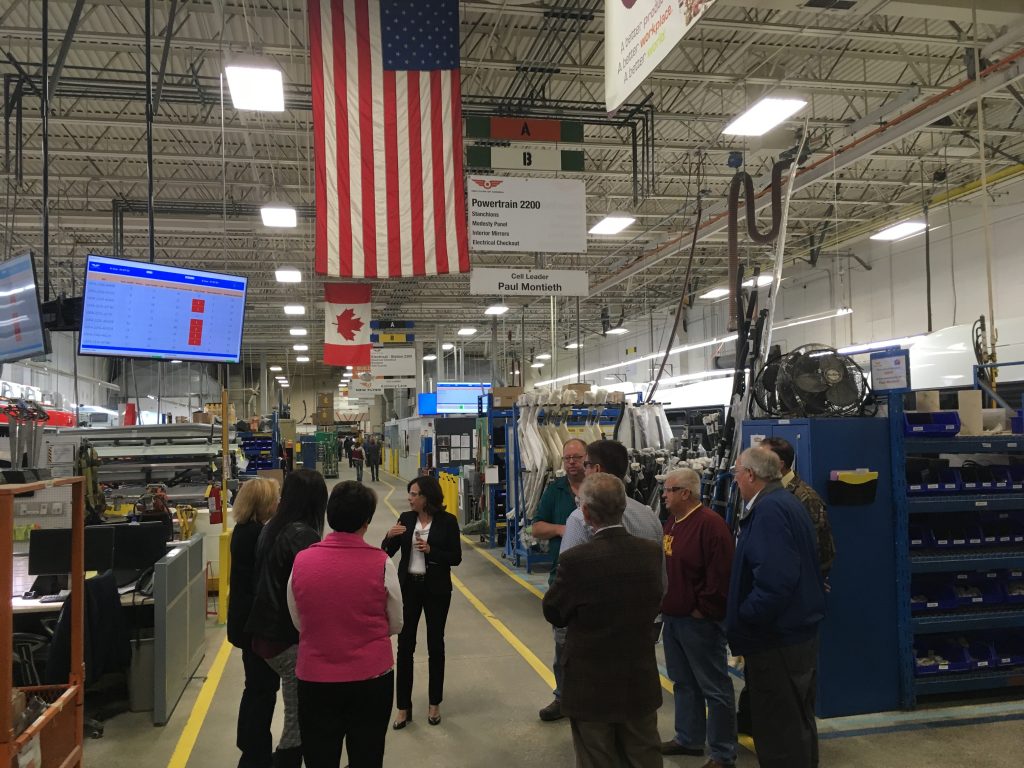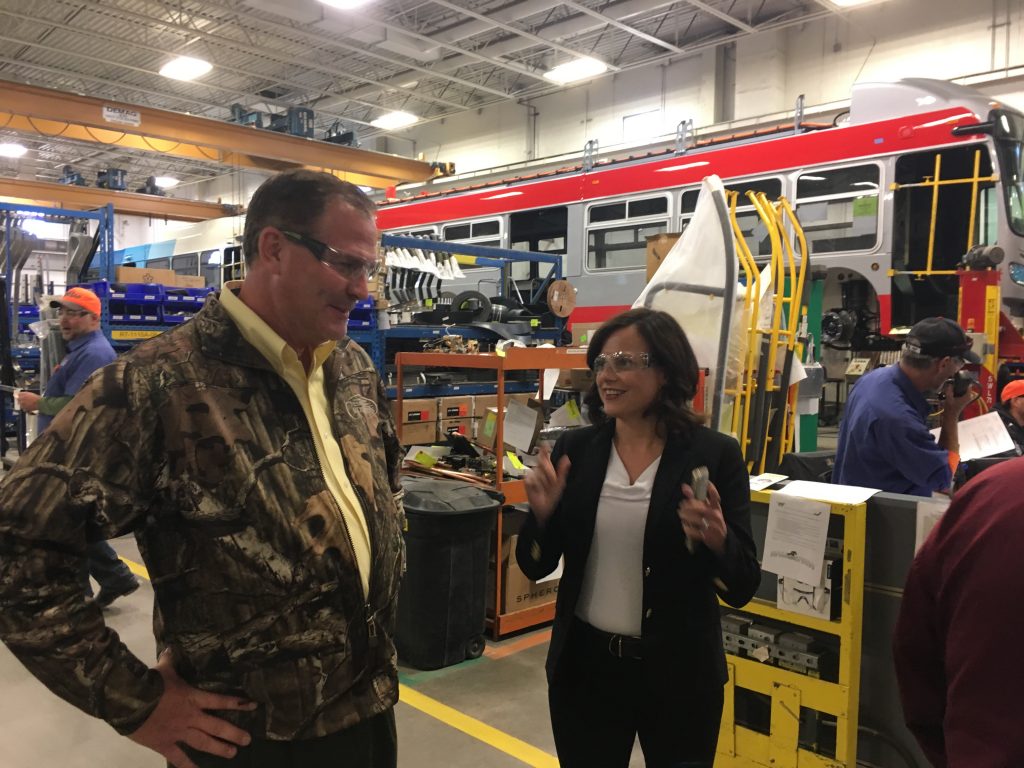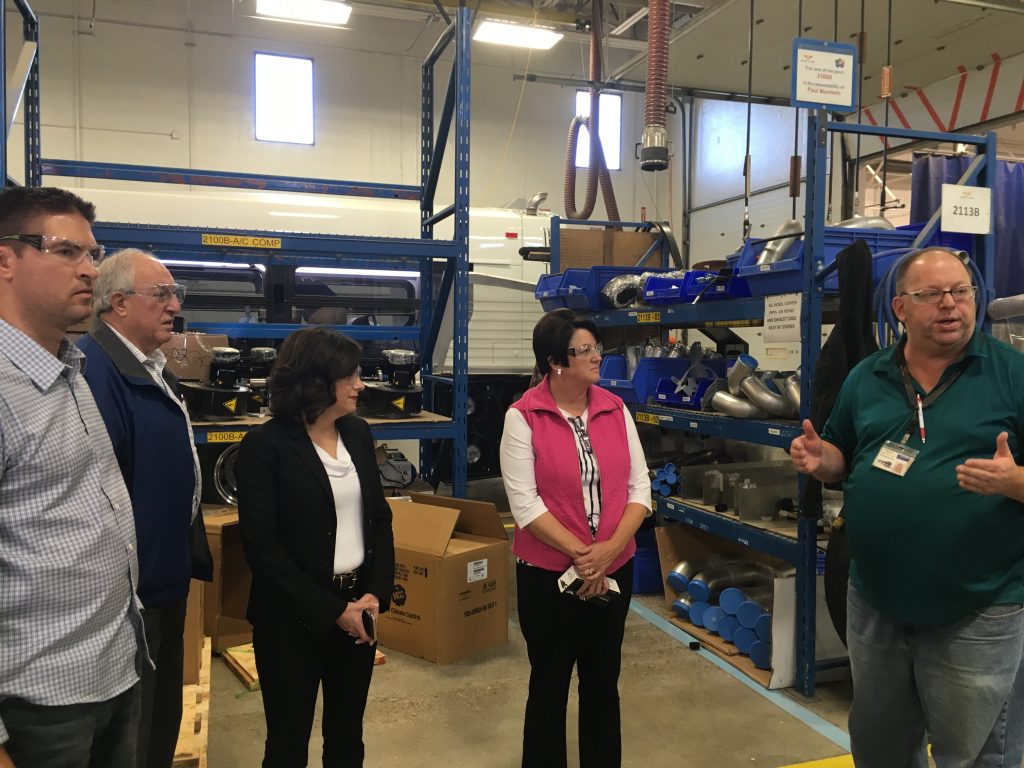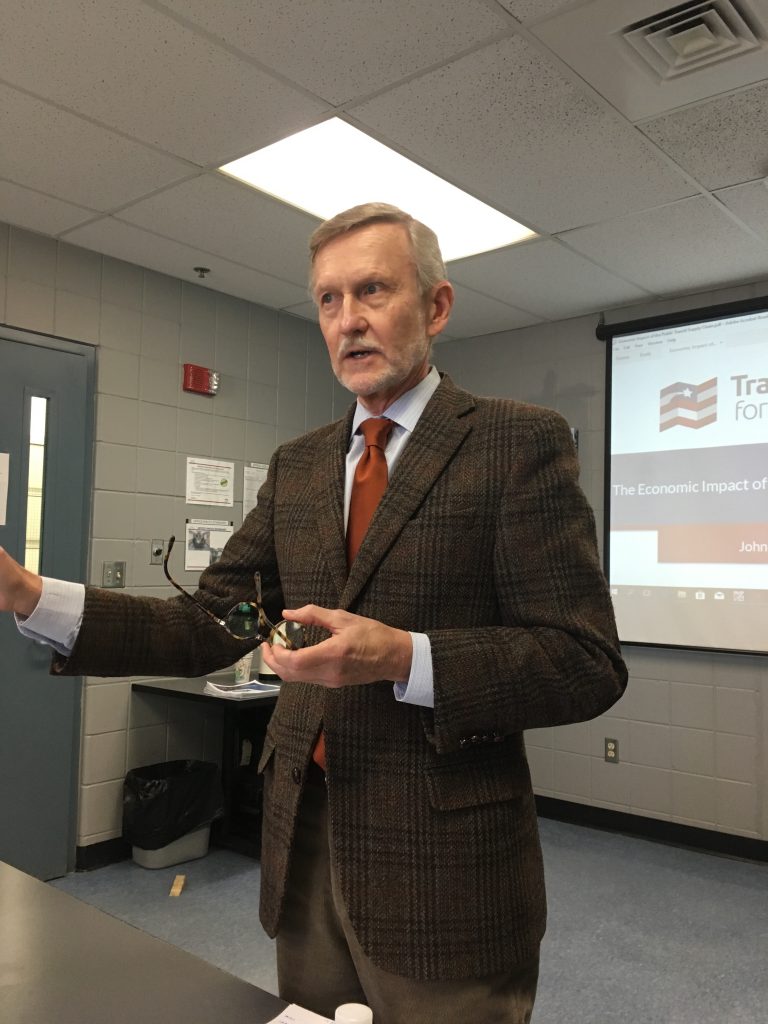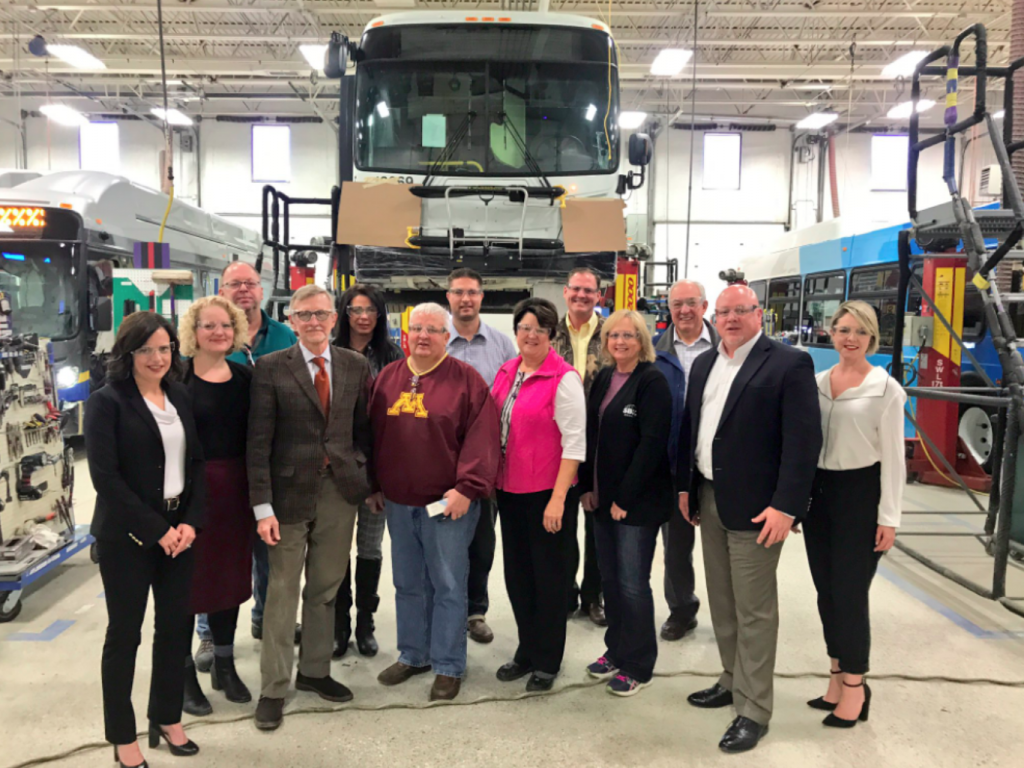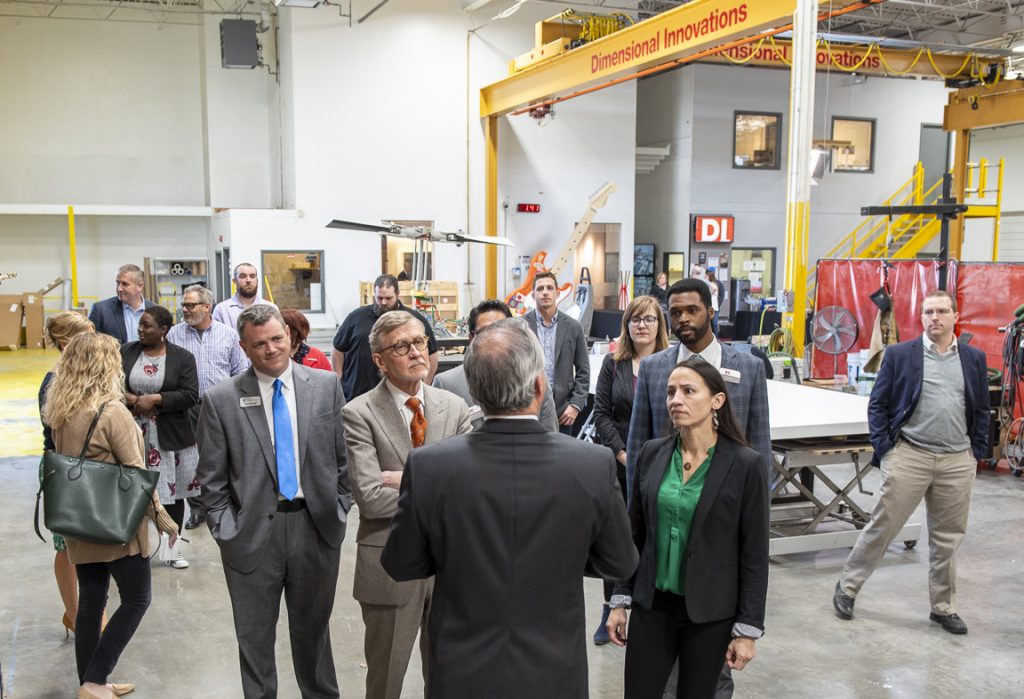
 Last month Transportation for America’s Chairman John Robert Smith traveled to Overland Park, KS to discuss the economic impact of public transportation dollars on local manufacturing jobs with state and local leaders. Local manufacturer Dimensional Innovations (DI) hosted the event at their facility where attendees saw the recently constructed shelters destined for the Downtown Kansas City Streetcar. Transit shelters are one part of the transit supply chain with over 20 percent of DI’s business stemming from public transportation.
Last month Transportation for America’s Chairman John Robert Smith traveled to Overland Park, KS to discuss the economic impact of public transportation dollars on local manufacturing jobs with state and local leaders. Local manufacturer Dimensional Innovations (DI) hosted the event at their facility where attendees saw the recently constructed shelters destined for the Downtown Kansas City Streetcar. Transit shelters are one part of the transit supply chain with over 20 percent of DI’s business stemming from public transportation.
Since opening in 2016, the Kansas City Streetcar (KC Streetcar) has been a remarkable success. It’s seen record high ridership levels, logging more than five million passenger trips. It’s also spurred more than $2 billion in residential, retail, and commercial investment. As Tom Gerend, Executive Director of the Kansas City Streetcar Authority states, the streetcar has fueled a economic boom in Kansas City.
But the benefits of transit systems like the KC Streetcar go far beyond the streets and neighborhoods they serve. In the KC Streetcar’s case, it has supported manufacturing jobs at 83 suppliers in 26 different states. Last month, Transportation for America traveled to one such manufacturer—Dimensional Innovations—in Overland Park, KS to highlight the economic impact of public transportation dollars on manufacturing jobs for state and local leaders.
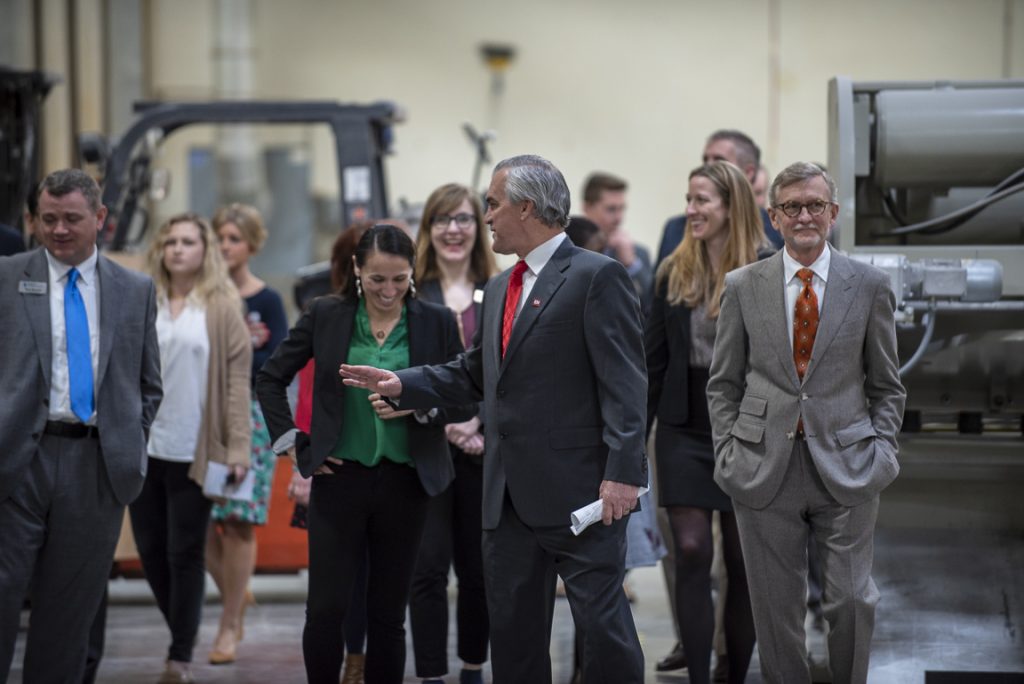
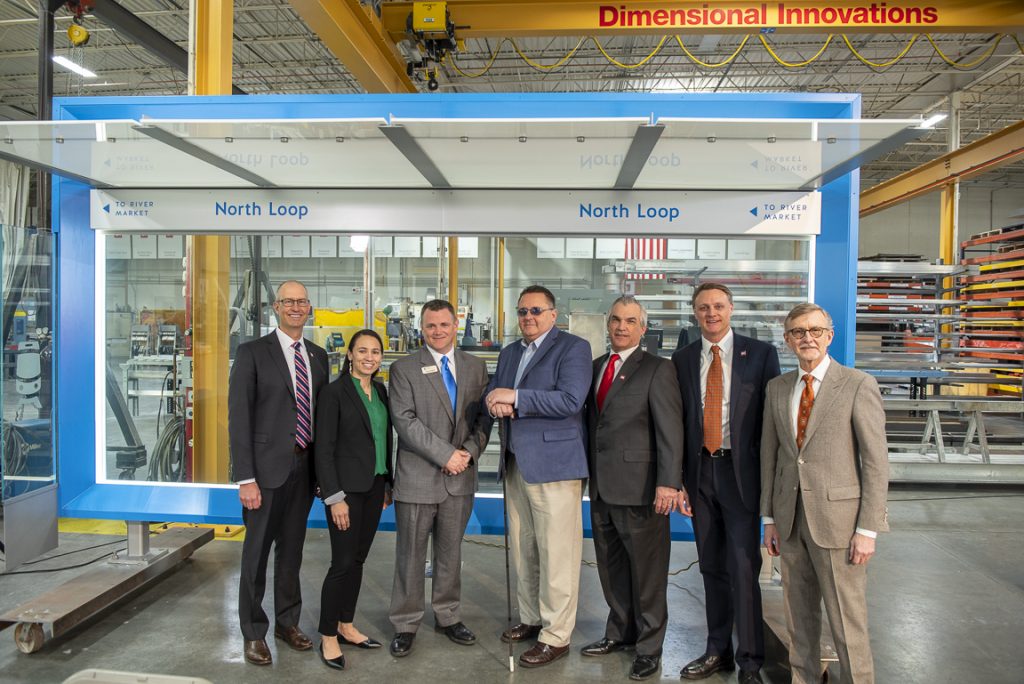
Congresswoman Sharice Davids and staff for Congressman Sam Graves joined leadership from the Greater KC Chamber of Commerce, Kansas City Area Transportation Authority, and Kansas City Streetcar Authority to tour Dimensional Innovations’ manufacturing facility where they build the station shelters for the KC Streetcar.
DI uses its inspired design skills—honed from creating interactive pieces for museums, hospitals, and sports arenas—to make sleek transit shelters that incorporate public art pieces and provide information to customers. Over 20 percent of DI’s business stems from public transportation.
“DI has been incredibly fortunate to be involved in transit-related work across the Kansas City metro for nearly 15 years,” said Tucker Trotter, CEO of Dimensional Innovations. “Transit work has not only created multiple jobs for our organization and allowed us to invest in other areas for growth, but it’s done the same for our local partners and subcontractors. We believe this creates a positive ripple effect within our community, and makes Kansas City an even better place for our employees and their families.”
The transit supply chain is far reaching, touching almost every congressional district. When cities like Kansas City or Chicago invest local and federal dollars in transit projects, they support jobs in the transit supply chain throughout the country. In the case of the KC Streetcar, when Kansas City purchased transit shelters, some of those dollars came to Overland Park and supported jobs locally.
Many public transit manufacturers and suppliers rely on a trained and consistent workforce. Without stable funding from state and federal partners, these jobs might be lost. According to Transportation for America Director Beth Osborne, “that’s a very real threat given that President Trump’s 2020 budget would cut federal transit capital grants by $1 billion.”
The decisions Congress makes regarding transportation funding will impact people who live in communities building transit systems and in the communities that manufacture the seats, engines, wheels, technology, and station shelters that keep those transit systems running. As Gerend says, “Transit investment equals job creation. Not only is the KC Streetcar creating opportunities locally, but it’s helping to create jobs across the country.”
All photos courtesy of Dimensional Innovations.
